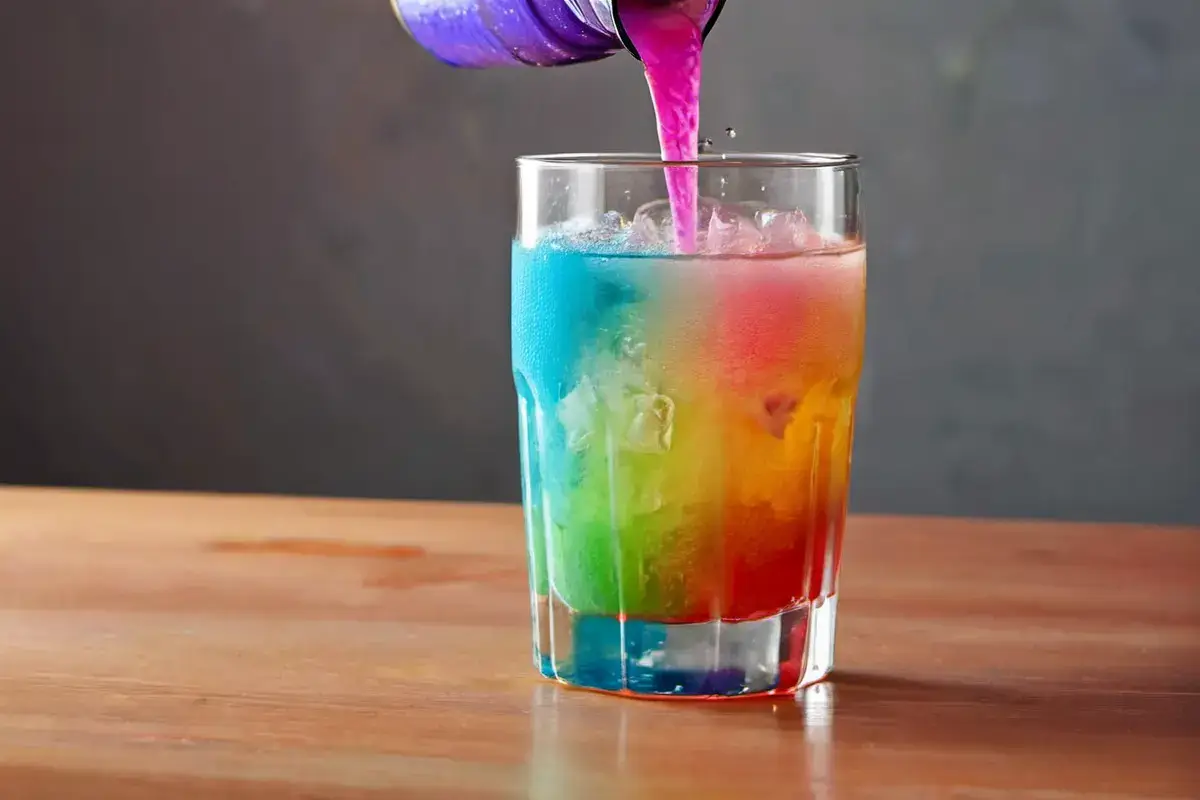When choosing dietary supplements, FDA approval is a crucial factor for ensuring safety and efficacy. This article addresses the question: Is Happy Juice FDA approved? We’ll explore the product’s composition, the FDA approval process, health risks, benefits, and more. Let’s dive in to understand whether Happy Juice meets the necessary standards for consumer trust.
Introduction
What is Happy Juice?
Happy Juice, marketed by Amare Global, enhances mood and improves gut health. This dietary supplement boosts mental clarity and overall well-being, promoting a happier and healthier lifestyle. But what exactly goes into this supplement, and why is its FDA approval status so important?
Importance of FDA Approval
FDA approval plays a vital role in ensuring that a product is both safe and effective. For dietary supplements like Happy Juice, FDA approval can significantly impact consumer confidence. Without this endorsement, there’s a greater risk of unverified claims and potential safety issues. Understanding whether Happy Juice is FDA approved helps consumers make informed decisions about their health.
What is Happy Juice?
Understanding Happy Juice
Composition and Ingredients
Happy Juice is crafted with a unique blend of ingredients aimed at boosting mood and enhancing gut health. The product includes various vitamins, minerals, and proprietary herbal blends. Each ingredient is selected for its potential benefits. For example, probiotics are included to support gut health, which is often linked to overall well-being. The exact formulation remains proprietary, but Amare Global promotes it as a supplement that enhances mental clarity and physical vitality.
Claims Made by Amare Global
Amare Global markets Happy Juice with several compelling claims. They state that the supplement can improve mood, increase motivation, and enhance mental performance. According to their promotional materials, Happy Juice provides nutrients essential for the “second brain”—the gut. This is based on the gut-brain connection theory, which suggests that a healthy gut can positively influence mood and cognitive function. However, these claims are made without FDA approval, making their validity and the product’s safety a topic of concern.
Continue to Part 3 to delve into the FDA approval process and its significance for dietary supplements like Happy Juice.
FDA Approval Process
FDA Approval Process for Supplements
Overview of FDA Regulations
The FDA plays a crucial role in safeguarding public health by regulating dietary supplements. Unlike prescription drugs, which must undergo rigorous pre-market approval, dietary supplements operate under different rules. Manufacturers are accountable to ensure they are safe for their customers and properly labeled. While the FDA does not pre-approve supplements, it monitors the market and can take action against products that are found to be unsafe or that make false claims.
Steps to Obtain FDA Approval
Obtaining FDA approval involves several steps, particularly if a supplement contains a new dietary ingredient (NDI). Here’s a breakdown of the process:
- Identify New Dietary Ingredient (NDI): If a supplement includes an NDI that was not marketed in the U.S. before October 15, 1994, the manufacturer must submit an NDI notification.
- Submit NDI Notification: The manufacturer must provide the FDA with evidence that the NDI is safe for consumption. This notification should include data from studies, research, or historical use.
- FDA Review: The FDA reviews the submitted data to ensure the ingredient does not pose a significant risk of illness or injury. If the FDA requires more information, they will request additional data from the manufacturer.
- FDA Response: The FDA provides feedback on the NDI notification. If the FDA is satisfied with the safety data, the product can be marketed, but this does not equate to full FDA approval as with pharmaceuticals.
Difference Between FDA Approval and Compliance
It’s important to distinguish between FDA approval and FDA compliance:
- FDA Approval: This signifies that a product has undergone thorough review and meets stringent safety and efficacy standards. This is common with prescription drugs and certain high-risk medical devices.
- FDA Compliance: This means the product adheres to existing regulations regarding safety, labeling, and marketing. Most dietary supplements, including Happy Juice, fall under this category. They are not “approved” by the FDA but must comply with guidelines to avoid being flagged or recalled.
Understanding this distinction helps consumers make better-informed choices. Compliance ensures the product is legally marketable, but without FDA approval, claims of efficacy and safety remain unverified by the agency.
The Regulatory Reality for Happy Juice
Current FDA Status of Happy Juice
Happy Juice is not FDA approved, meaning the FDA has not evaluated its claims or confirmed its safety and effectiveness. While it’s legally sold, consumers should know that the FDA has not endorsed its purported benefits. According to the Health Fraud Product Database, numerous supplements on the market, including Happy Juice, operate without FDA approval. This database identifies products that have made unverified health claims or contain potentially harmful ingredients.
Manufacturer Claims vs. Regulatory Reality
Amare Global makes several claims about Happy Juice’s benefits, such as improved mood and mental clarity. However these claims haven’t been confirmed from the FDA. The FDA requires substantial evidence to support health claims, which Happy Juice has not provided. This gap between marketing and regulatory oversight highlights the importance of skepticism and due diligence. Consumers should critically evaluate the product’s claims and consult healthcare professionals.
Legal and Regulatory Challenges
Happy Juice and similar products face ongoing scrutiny from regulatory bodies. The FDA has issued warnings to numerous companies for making unapproved health claims. For instance, the FDA Advisory underscores the need for compliance with FDA regulations. Amare Global must ensure that their marketing materials and product labels do not make unsupported health claims. This scrutiny serves as a reminder of the necessity for transparency and adherence to regulatory standards.
Happy Juice and FDA Approval
Is Happy Juice FDA Approved?
Current FDA Status of Happy Juice
As of now, Happy Juice is not FDA approved. This means the FDA has not reviewed or endorsed the product’s safety or efficacy claims. Although it is legally sold, consumers should be aware that its claims have not been verified by the FDA. The Health Fraud Product Database includes many supplements like Happy Juice that are marketed without FDA approval. This database identifies products flagged for making unsubstantiated health claims or containing potentially harmful ingredients.
Manufacturer Claims vs. Regulatory Reality
Amare Global promotes Happy Juice with several health benefits, such as enhanced mood, increased motivation, and improved mental performance. These claims, however, lack FDA verification. The FDA requires rigorous evidence to support such health claims, which Happy Juice has not provided. This discrepancy highlights the importance of regulatory oversight. Consumers need to be cautious and critically assess the product’s claims, as marketing assertions may not reflect regulatory reality.
Legal and Regulatory Challenges
Happy Juice, like many dietary supplements, faces significant legal and regulatory challenges. The FDA has issued warnings to numerous companies for making unapproved health claims. For instance, the FDA Advisory emphasizes the importance of compliance with FDA regulations. Amare Global must ensure their marketing materials and product labels do not make unsupported claims about Happy Juice’s benefits. Ongoing regulatory scrutiny underscores the necessity for transparency and adherence to established standards.
Importance of FDA Approval
FDA approval is critical for ensuring the safety and efficacy of health products. For dietary supplements like Happy Juice, this approval means the product has been thoroughly reviewed and verified by the FDA. Without it, the product’s claims remain unverified, raising potential safety concerns. Understanding the significance of FDA approval helps consumers make informed decisions and select products that have been rigorously tested and approved.
Consumer Guidance
How to Determine if a Supplement is FDA Approved
To verify whether a supplement is FDA approved, consumers can use the FDA Dietary Supplements database. This resource allows users to search for products and check their regulatory status. By using this tool, consumers can ensure the supplements they are considering are safe and effective.
Understanding FDA Labels and Claims
Reading and understanding FDA labels is crucial. FDA-approved products will have specific language and disclaimers distinguishing them from non-approved items. Recognizing these labels helps consumers make informed decisions and avoid potentially misleading claims. For example, FDA-approved supplements often include statements about their intended use, safety, and efficacy, which are absent in non-approved products.
Consumer Recommendations
Consumers should approach dietary supplements like Happy Juice with caution, especially when FDA approval is absent. Consulting with healthcare providers before starting any new supplement regimen is advisable. This is particularly important for individuals with pre-existing health conditions or those taking other medications, as interactions can occur.
Seeking Alternatives
For those concerned about the lack of FDA approval for Happy Juice, seeking alternatives is a prudent choice. FDA-approved supplements offer a safer and more reliable option. These products have undergone thorough testing and review, providing assurance of their safety and effectiveness. Probiotics and certain multivitamins are well-known for enhancing mood and promoting gut health. They are FDA-approved options readily accessible to consumers.

Health Risks and Benefits
Health Risks Associated with Happy Juice
Potential Side Effects
Like any dietary supplement, Happy Juice can have side effects. Users have reported various digestive issues, including bloating, gas, and stomach cramps. Some individuals have also experienced headaches, dizziness, and even mild allergic reactions. These side effects, though generally not severe, can be uncomfortable and disruptive. It’s essential to be aware of these potential issues before incorporating Happy Juice into your daily routine.
Expert Opinions and Warnings
Healthcare professionals often advise caution when considering supplements that lack FDA approval. Without this endorsement, people may not fully understand the complete range of potential side effects and interactions with other medications. Experts recommend consulting a healthcare provider before using products like Happy Juice, especially for individuals with pre-existing health conditions or those taking other medications. This precaution helps prevent adverse reactions and ensures that the supplement will not interfere with other treatments.
Reported Benefits
User Testimonials
Despite the lack of FDA approval, many users report positive experiences with Happy Juice. Testimonials often highlight improvements in mood, increased energy levels, and enhanced mental clarity. Users frequently mention feeling more motivated and productive after incorporating the supplement into their routine. These personal stories indicate that Happy Juice may provide certain advantages, although it’s essential to approach them with care. Personal testimonials, while valuable, do not replace scientific validation.
Clinical Studies and Findings
There is limited scientific research available on Happy Juice. Some preliminary studies suggest potential benefits, but these findings are not conclusive. The studies conducted often lack the rigorous peer-review process that is standard for establishing the efficacy and safety of dietary supplements. The scientific community emphasizes the need for more comprehensive research to confirm the claims made by Happy Juice. Until such studies are available, the benefits should be approached with skepticism and a critical mindset.
Balancing Risks and Benefits
When considering Happy Juice, it’s crucial to weigh the potential benefits against the risks. While many users report positive outcomes, the lack of FDA approval and scientific validation poses significant concerns. It’s important to consider whether the anecdotal benefits outweigh the potential health risks, particularly for those with existing health conditions or those taking other medications. Talking with a healthcare professional is a great way to serve useful advice on making an informed choice.
For those hesitant about using an unapproved supplement, seeking FDA-approved alternatives is a wise choice. FDA-approved supplements have undergone rigorous testing and review, providing assurance of their safety and efficacy. Alternatives like probiotics and specific multivitamins are well-documented for their benefits in mood enhancement and gut health. These options offer a reliable and safer route for individuals looking to improve their health without the uncertainties associated with unapproved products. For example, readers might find useful tips in the article on how to make homemade cavatelli from Cookery Gems, as it includes insights on healthy ingredients that can benefit gut health.
The Importance of Research and Vigilance
Consumers should remain vigilant and informed when selecting dietary supplements. Researching products, reading reviews, and understanding regulatory statuses are crucial steps. Utilizing resources like the FDA Dietary Supplements database can help verify the safety and efficacy of supplements. Staying informed helps consumers avoid potentially harmful products and make choices that align with their health goals.
Final Thoughts on Happy Juice
Although Happy Juice has potential benefits, it lacks FDA approval and comprehensive scientific validation, which people should not overlook. Potential users should weigh the reported benefits against the known risks and consider consulting healthcare providers before starting the supplement. Exploring FDA-approved alternatives might provide a safer and more effective option for those seeking to enhance their mood and gut health. Readers can explore further insights on related topics, such as discovering what goes good with crab rangoon, to find complementary foods that support overall health and well-being.
Consumer Guidance
How to Determine if a Supplement is FDA Approved
Checking FDA Databases
The FDA Dietary Supplements database allows consumers to verify if the FDA has approved a supplement. This resource allows users to search for products and check their regulatory status. It’s an essential tool for ensuring that the supplements you use are safe and effective.
Understanding FDA Labels and Claims
Reading and understanding FDA labels is crucial. FDA-approved products will have specific language and disclaimers that distinguish them from non-approved items. Recognizing these labels helps consumers make informed decisions and avoid potentially misleading claims.

Alternatives to Happy Juice
FDA Approved Supplements for Mood and Gut Health
List of Alternatives
Several FDA-approved supplements can help with mood enhancement and gut health. These include probiotics and certain multivitamins known for their mood-boosting and gut health benefits. Probiotics such as Lactobacillus and Bifidobacterium have a well-known reputation for enhancing digestive health.
Comparison of Ingredients and Benefits
Comparing the ingredients of FDA-approved alternatives to Happy Juice reveals significant differences. Approved supplements often have extensive research backing their claims. They offer a more reliable option for consumers looking for proven benefits. For example, probiotics have been studied extensively and shown to support gut health effectively, while Happy Juice’s claims remain unverified by the FDA.
Conclusion
Summary of Key Points
clusion, Happy Juice is not FDA approved. This raises questions about its safety and efficacy. While it may offer some benefits, these have not been verified by the FDA. Consumers should exercise caution and consult healthcare professionals before use.
Final Thoughts
FDA approval is vital for ensuring the safety and effectiveness of dietary supplements. Happy Juice, despite its popularity, does not meet these rigorous standards. Opting for FDA-approved products can provide better assurance of their safety and health benefits.
FAQs
Is Happy Juice FDA Approved?
Happy Juice does not have FDA approval. This means the FDA has not evaluated its safety or efficacy.
What are the potential side effects of Happy Juice?
Potential side effects include digestive issues, headaches, and interactions with other medications. These should be considered before using the product.
Are there any FDA-approved alternatives to Happy Juice?
Yes, there are several FDA-approved supplements for mood and gut health, including probiotics and specific multivitamins known for their benefits.

